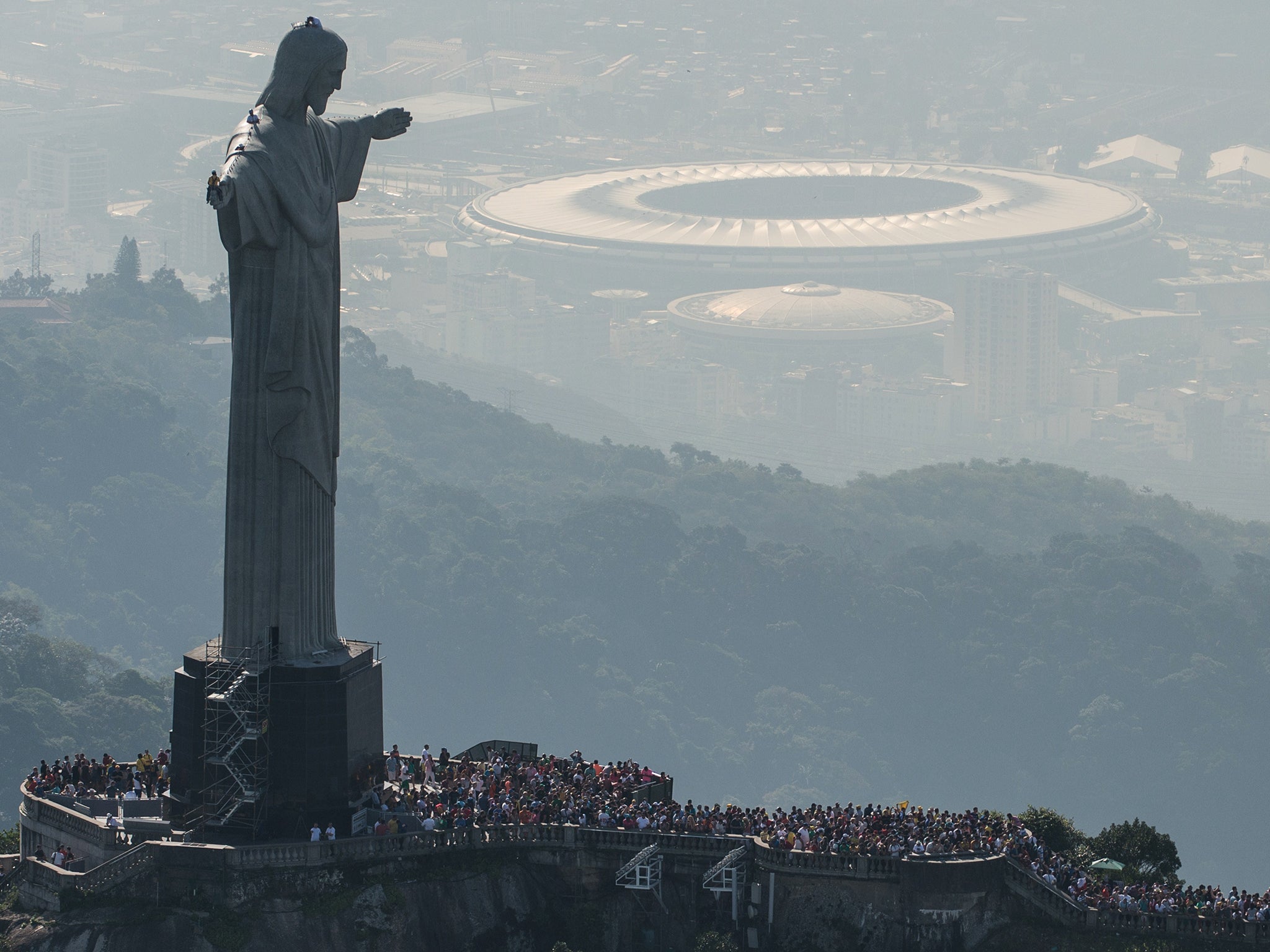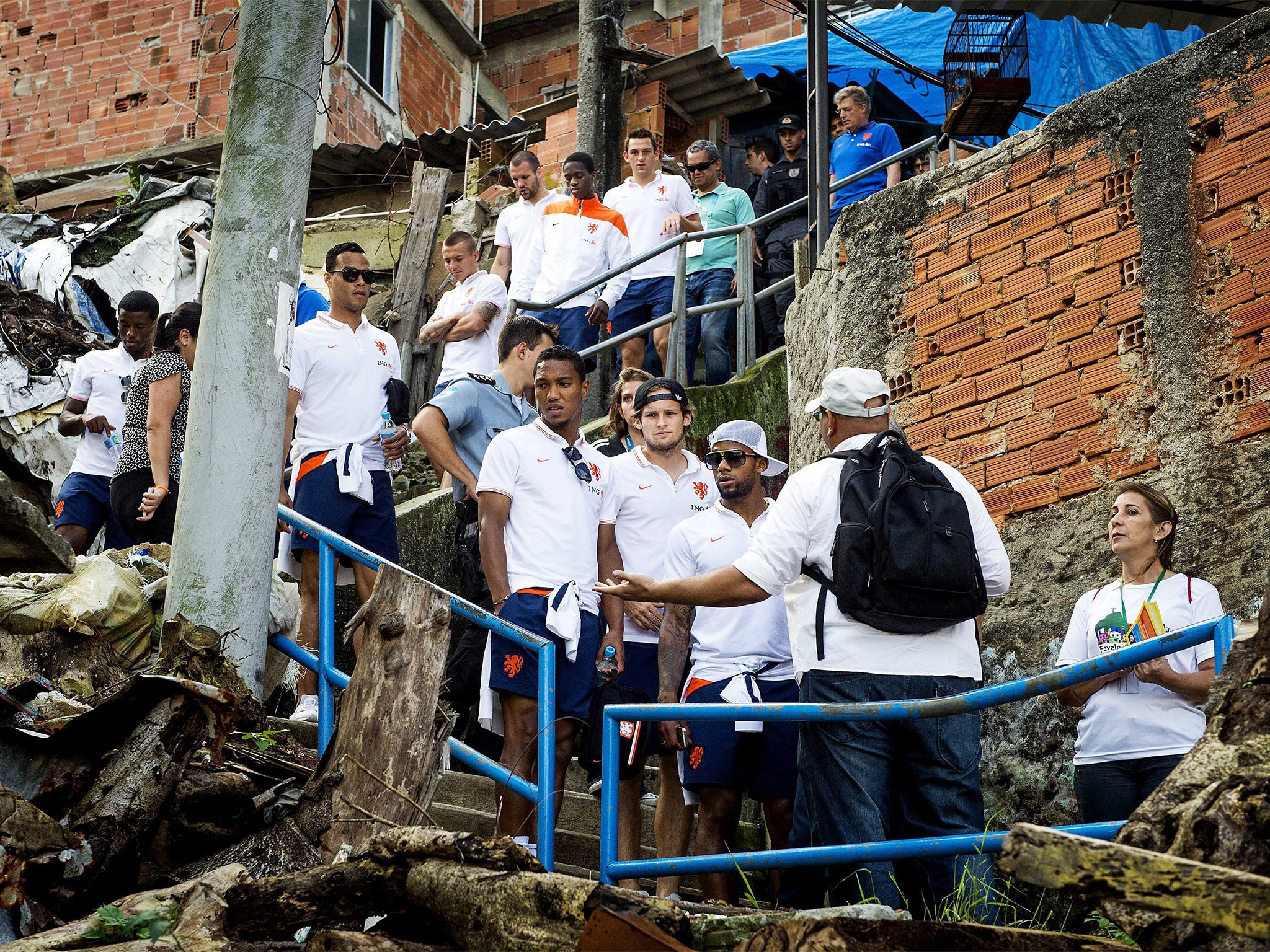Hosts with the most: Thanks Brazil, you were a World Cup winner too
Now the football is over, Ian Herbert pays tribute to the hosts for the warmth of their welcome to the world, their unexpected success in staging the tournament, and senses a new national belief that can begin to tackle the numerous social problems that blight the country

We drove off in search of the real Neymar and stumbled on the real Brazil.
The trip took us an hour out of Sao Paulo to Santos, a place and a club synonymous with Brazilian football legend: the production line of so many greats that the mural depicting them all runs half a mile along the training ground’s whitewashed perimeter wall. From Pele, Zito and Dorval in past great days to Robinho, Alex and Neymar in these modern times when footballers are a multi-million pound export commodity. Santos, who banked £45m for Neymar, should be awash with wealth, but if anyone knows where all the cash has gone then they’re certainly not telling. The only link between this place and the modern football money machine is the gleaming Nike store full of over-priced shirts, plonked incongruously in the middle of the modest, careworn stadium.
The flip side to this scene of missing money is that Santos does not exude the cold corporate exterior of 21st-century football. We wanted to talk to those who discovered Neymar, and while that would have required a battery of emails and equivalent communications to staff at any other elite club, here we stumbled on the player’s one-time youth coach in the club museum. Lima – the Brazilian equivalent of a Nobby Stiles or Pat Crerand, who played and roomed with Pele – was just milling around and was not too busy to sit and talk for as long as we needed.
The club’s communications officer, Caroline Piedade, was not too busy to translate, nor to offer us the offices to plug in computers and write. Santos FC, with its unfathomable lack of wealth, provided the richest welcome we had known in football.
It was Brazil in microcosm. The welcome is warmer than any imaginable on earth because the people love their place almost as much as conversation and company. Every apartment block in Porto Alegre includes a communal sala da festa room for neighbours and friends to gather. You will never sell your apartment there if it does not possess an in-built churrasqueira or barbecue grill. Here were people wanting to know about me, my job and my children and desperate to discuss all three in English, a language alien to them because, to a serious level, it is only taught in private schools.
But the country, like Santos Football Club, feels like something out of 1950, and at best a script straight from Life on Mars. The middle-class family who rented us their apartment on Sao Paulo’s Avenida Reboucas thought nothing of the fact there was no running hot water in the kitchen sink. “You only get hot if you fight for it,” said Fernando Ostrovsky, the son of the family. The taxi drivers thought nothing of the fact that their country lacks the efficiency to finish a road-building project, leaving fly-overs and bypasses built for the World Cup hanging in mid-air. The effect became comical after a while.
They don’t finish jobs because the state’s grip is being relinquished slowly and suspiciously in this new democracy. An electricity-generation specialist, Otavio Marshall. who helped explain why favela communities are forced to throw up wires to tap the overhead electricity supply, told me that the unfathomable tax system was rigged to keep foreign business out of Brazil.

He sent me details of a lawyer who had dedicated himself to compiling the tax regulations of the Minas Gerais state, where the Belo Horizonte stadium is located, into one volume. It weighs 7.4 tonnes and has been submitted for a Guinness Book of Records entry.
And then there is the corruption – a fact of life for this and any other nation still staggering into the light, 30 years after military dictatorship. The investigative journalist Juca Kfouri writes about the ideology here of rouba, mas faz (roughly, “It’s OK to steal if you get things done”). The only topic which absorbs the taxi drivers more than this is the tax havens into which most of the money earned seems to vanish.
There has been an inbuilt air of resignation about all of this among the Brazilian people. There’s a rather northern English black humour about the place too, mixed up with fierce local pride. A popular joke tells of two Brazilians discussing, over two bottles of the ubiquitous Skol lager, how the country is going to the dogs, when an Argentine friend walks up and convivially starts agreeing with them. They ask him what on earth he’s talking about.
But the World Cup has quickened the Brazilian desire to see their country become better. The $11bn (£6.4bn) spent on football stadiums was obscene when the sewage runs into the streets of the favelas, but this tournament has demonstrated to the nation that they can make things work. Their planes ran on time. Their airports were efficient. The police made the cities safe. An overpass at Belo Horizonte did collapse, killing two people, but the stadiums worked.
And the tournament has stirred a national consciousness which, by every available account, did not seem to exist before. The Brazilians all talk about the “barking dog” nature of popular protest in their country – “a dog barks when you rouse it but he doesn’t keep it up when you walk away” – but they will tell you that the anger which preceded this tournament was different from any other. The protests were about the government’s incompetence and corruption and they will not be vanishing now. As Geldo Zahran, professor of international relations at Sao Paulo’s Catholic University, told the Financial Times at the weekend: “There’s now a cloud over the elite. People [feel they can] take to the streets again. So the elite feels it needs to be more responsive.”
Such are the benefits of staging a World Cup in a developing country, rather than reinforcing the riches of Germany, Japan, Russia or Qatar. The rewards have been hard-earned for Brazil, who have had to fight for every penny of help from Fifa. That much was clear from three hours I spent in the company of the country’s erudite deputy sports minister, Luis Fernandes, back in April. But the rewards for those of us privileged enough to cover the event are unquantifiable and unforgettable.
So thank you, Shashi Kapour, Lucia Scalco, Ubiratan Marquette, Luiza Scalco, Caroline Piedade, Fernando Ostrovsky and many more like you for your goodness, your friendship, your conversation and your company. Yours has been a World Cup the likes of which we will not see again for generations. In the most meaningful way, your country was the winner.
Join our commenting forum
Join thought-provoking conversations, follow other Independent readers and see their replies
Comments
Bookmark popover
Removed from bookmarks